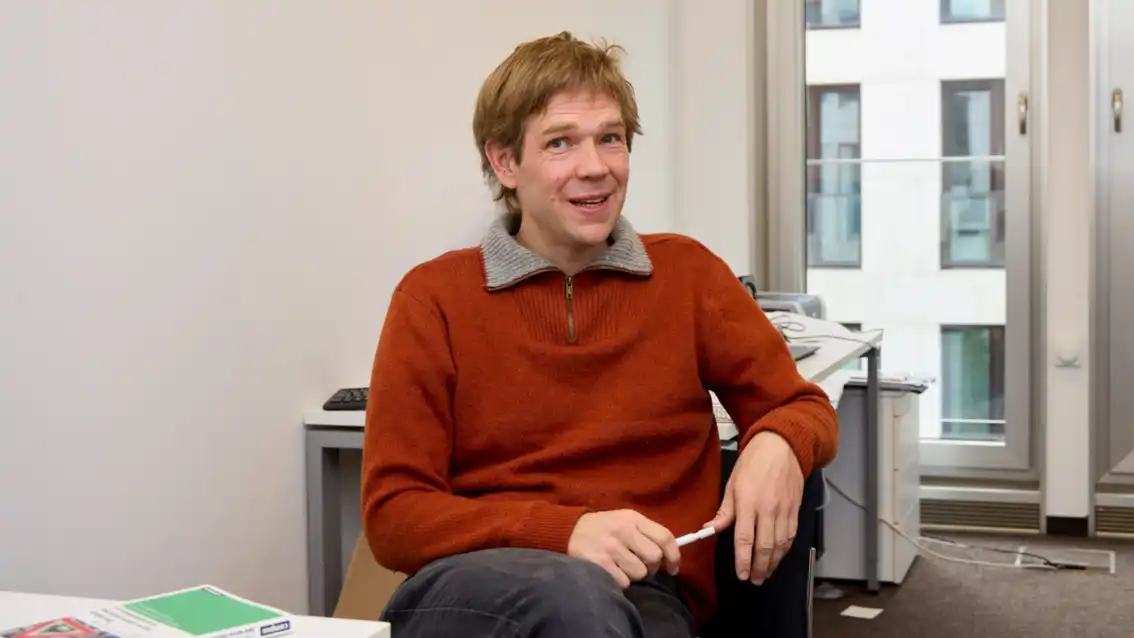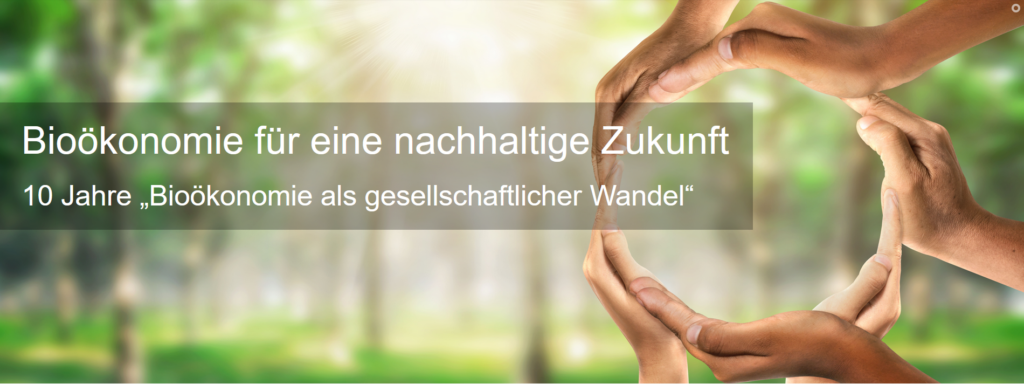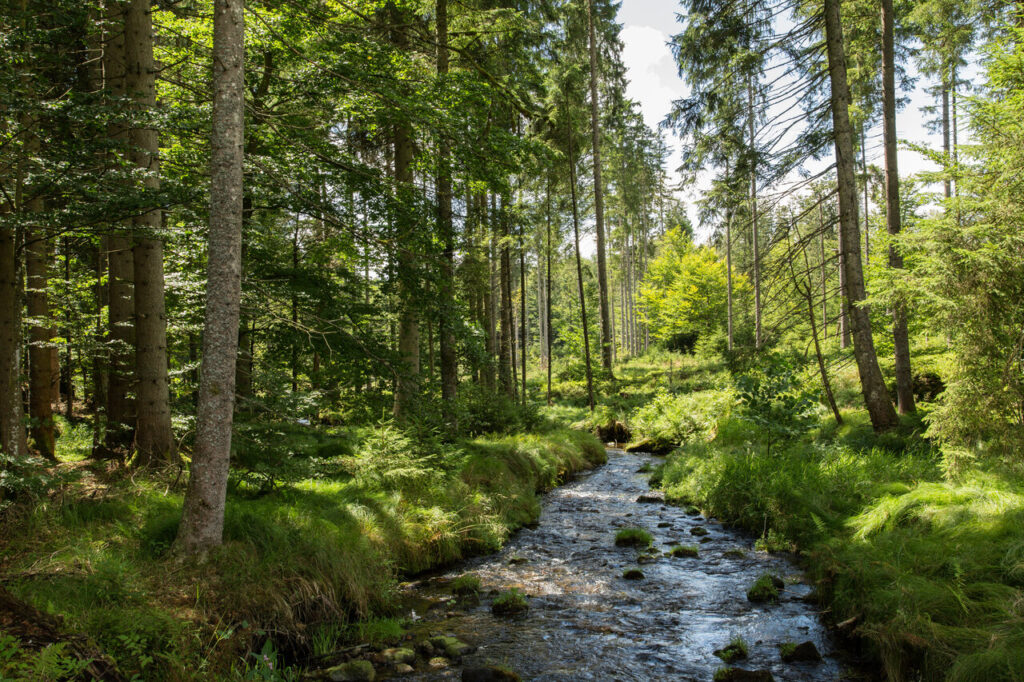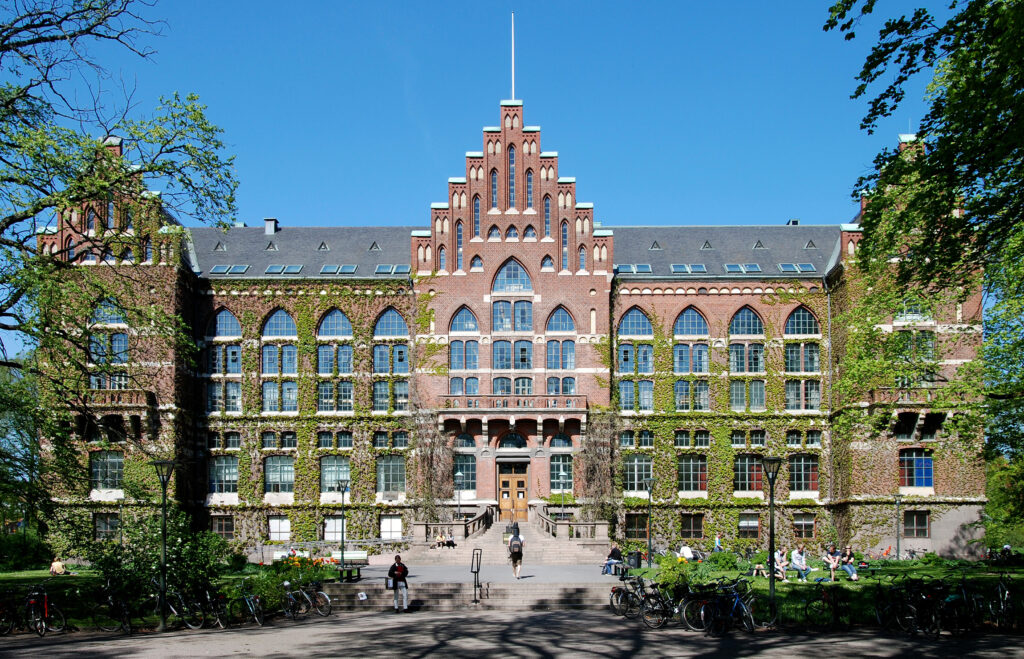Auf der Wissenschaftsseite der taz.die Tageszeitung ist ein Artikel erschienen, der das Netzwerk Soziologische Waldforschung vorstellt und in den Kontext setzt zu aktuellen Herausforderungen im Waldmanagement sowie in der sozialwissenschaftlichen Befassung damit. Flumen Mitarbeiterin Jana Holz hat das Netzwerk 2023 mit dem ersten soziologischen Waldsymposium in Jena in Kooperation mit Anna Saave (Uni Freiburg), Ronja Schröder (ehemals Uni Oldenburg) und Ronja Mikoleit (FVA Freiburg) ins Leben gerufen. Mittlerweile gehören dem Online-Verteiler über 100 Personen an und das dritte Symposium für 2025 ist bereits in Planung.
Dennis Eversberg im Interview „Gesellschaftliche Kräfteverhältnisse in der sozialökologischen Transformation“ | 05. Dezember 2024

Dennis Eversberg, ehemaliger Projektleiter von flumen, spricht mit Guido Speckmann über die Einstellungen der Menschen in Deutschland zur sozial-ökologischen Transformation, wie diese mit jeweiligen Klassenlagen und Klasseninteressen verbunden sind, welche gesellschaftlichen Spannungen und Risiken sich daraus ergeben und auch darüber, wie politische und gesellschaftliche Gruppen diese Spannungen befördern. Das Interview ist im online-„Energiewende-Magazin“ der EWS Schönau nachzulesen.
flumen auf der Konferenz „Bioökonomie für einen nachhaltige Zukunft – 10 Jahre ‚Biooökonomie als gesellschaftlicher Wandel'“ | 26. November 2024

Anlässlich des 10-jährigen Bestehens des Forschungsprogramms „Bioökonomie als gesellschaftlicher Wandel“ organisiert der Projektträger Jülich in Zusammenwirken mit dem Bundesministerium für Bildung und Forschung die Konferenz „Bioökonomie für einen nachhaltige Zukunft – 10 Jahre „Biooökonomie als gesellschaftlicher Wandel“, die am 26. November 2024 in Bonn stattfinden wird.
Die Organisator*innen der Konferenz schreiben zum Inhalt: „Im Rahmen dieser eintägigen Konferenz möchten wir Ihnen einige herausragende Leuchtturmprojekte aus diesen zehn Jahren „Bioökonomie als gesellschaftlicher Wandel“ präsentieren und mit Ihnen die heutige und zukünftige Rolle und die Beiträge gesellschaftswissenschaftlicher Forschung in der Bioökonomie diskutieren. Seien Sie dabei und informieren Sie sich über spannende Entwicklungen in der Bioökonomie und tauschen Sie sich mit Expertinnen und Experten aus Wissenschaft, Wirtschaft und Politik dazu aus.“
Auch die Mitarbeitenden von flumen wirken bei der Konferenz mit: Dennis Eversberg stellt als ehemaliger Gruppenleiter das Projekt und die wichtigsten Ergebnisse von flumen vor. Zudem nimmt er an der Podiums- und Abschlussdiskussion ‚Quo vadis Bioökonomie und Gesellschaft‘ teil. Martin Fritz präsentiert die von Philip Koch und Jana Holz erstellten Poster zu ihren jeweiligen Fallstudien zur Forst- und Waldwirtschaft in Finnland bzw. zum Olivenanbau in Spanien.
Das Programm und Registrierungsmöglichkeit sowie weiterführende Informationen zur Konferenz sind auf der Konferenz-Webseite zu finden.
Martin Fritz auf der Herbsttagung der Sektion Umwelt- und Nachhaltigkeitssoziologie der Deutschen Gesellschaft für Soziologie | 25. Oktober 2024
Martin Fritz und der ehemalige Projektleiter Dennis Eversberg stellen am 25. Oktober 2024 auf der Herbsttagung der Sektion Umwelt- und Nachhaltigkeitssoziologie in Augsburg in ihrem Beitrag „Polarisierung oder neuer Verteidigungskonsens? Kräfteverschiebungen im sozial-ökologischen Transformationskonflikt im Zeichen der Polykrise“ erste Auswertungen der Wiederholungsbefragung von flumen vor. Darin gehen sie der Frage nach, ob und wie sich die von flumen in früheren Analysen (Eversberg et al 2024) rekonstruierte Konstellation von Mentalitäts- und Interessengegensätzen im sozial-ökologischen Transformationskonflikt in Deutschland zwischen Ende 2021 und Ende 2023 unter dem Eindruck von Ereignissen wie dem Krieg in der Ukraine, der folgenden Inflation und des politischen Rechtsrucks verändert hat.
Informationen zur Herbsttagung und zum Programm sind auf der entsprechenden Webseite der Deutschen Gesellschaft für Soziologie zu finden.
Philip Koch beim Forschungsforum Umweltsoziologie & Transformation der TU Dortmund | 15. Oktober 2024

Der Ruf nach einer sogenannten sozial-ökologischen Transformation wird angesichts sich zunehmend verschärfender Krisen wie dem Klimawandel immer lauter. Trotzdem scheint zum Einen keine Einigkeit darüber zu bestehen, wohin sich Gesellschaft und Wirtschaft bewegen sollen, zum Anderen ist von tiefgreifenden Veränderungen, die den Begriff „Transformation“ verdienen, bisher nicht viel zu spüren. Die Nachwuchsforschungsgruppe Mentalitäten im Fluss „flumen“ fragt, warum das so ist und versucht durch die Erforschung von Alltagspraktiken und mentalen Dispositionen, Dynamiken sozialer-ökologischer Transformationen besser zu verstehen.
Mit einem Vortrag zum Thema „Bringing Nature back in: Soziale Naturbeziehungen und Mentalitäten im Kontext sozial-ökologischer Transformation“ eröffnete Philip Koch am 15. Oktober 2024 das Forschungsforum Umweltsoziologie & Transformation an der Technischen Universität Dortmund im Wintersemester 2024/2025.
Informationen zu weiteren Veranstaltungen des Forschungsforums sind auf der Webseite der Technischen Universität Dortmund zu finden.
Dr. Jodie Asselin (University of Lethbridge) und Dr. Agata Konczal (Wageningen University): „Exploring the Green Frontier: Patterns of Inequality in Europe’s Recent Forest Initiatives“ | 13. November 2024

13. November 2024, 6 Uhr MST (Nordamerika) / 14 Uhr MEZ (Deutschland) / 15 Uhr OEZ (Finnland)
Titel: Exploring the Green Frontier: Patterns of Inequality in Europe’s Recent Forest Initiatives
Vortragende: Dr. Jodie Asselin (University of Lethbridge, Canada) und Dr. Agata Konczal (Wageningen University, Netherlands)
Der Vortrag und die Diskussion laufen online und auf Englisch.
Inhalt:
In recent decades, there has been a global consensus on the urgent need for coordinated efforts to combat forest loss and degradation, given forests‘ critical roles in climate change mitigation, biodiversity, and local economies. However, the development and implementation of forest policies are complex and politically charged, often addressing ‚wicked‘ problems with diverse actors and conflicting values. The proposed solutions—such as conservation, rewilding, certification, and forest expansion—introduce their own challenges. This paper introduces the concept of ‚green frontiers‘ as a lens to better understand patterns and consequences of this new forest dynamic in Europe. Applying critical perspectives typically used for frontier studies in the Global South to the Global North, this paper addresses a gap in literature on frontier-making in Europe while highlighting how environmental discourses are reshaping landscapes and communities, often reflecting historical patterns of dispossession and exploitation.
Zoom Link zur Online Teilnahme: https://uni-jena-de.zoom-x.de/j/65854920539
Meeting-ID: 658 5492 0539; Kenncode: 008070
Der Vortrag ist Teil der Coffee Talks Human-Forest-Relationships
Coffee Talks Human-Forest-Relationships
Let’s sit, have a coffee and talk in the scientific café! The “Coffee Talks HFR” give room for open and relaxed discussions on current research subjects related to human and society relations to forests. It warmly welcomes all interested in forest-related research to join the online sessions.
Each session lasts 1,5 hours. It starts with a 20-30 minute presentation of a guest speaker. After the presentation, with coffee or tea at hand, participants have plenty of room for an open discussion and exchange.
The “Coffee Talks HFR” take place three to four times per term on Wednesdays at 6 am MST / 2 pm CET / 3 pm EET.
Guest speakers wanted!
If you are interested in contributing to the “Coffee Talks HFR”, please contact either jana.holz(at)uni-jena.de, jodie.asselin(at)uleth.ca or tuulikki.halla(at)uef.fi with info on your subject (title and short abstract) and a preferred date.
The interdisciplinary and international scientific “Coffee Talks HFR” have a long tradition. In 2021, a cooperation between the Finnish research project Human-Forest Relationships in Societal Change and the German research group Mentalities im Flux (flumen) launched and hosted the “Scientific Coffee Sessions HFR”. Since then, they hosted more than twelve sessions with speakers form interdisciplinary social science background and international participants. In 2024, the network broadened and the event got a new name: “Coffee Talks HFR”.
The “Coffee Talks HFR” are hosted by:
- Human-Forest Relationship Research Club of the Finnish Society of Forest Science
- The research group “Mentalities in Flux” (flumen) Research Project
- Forest Anthropology Working Group on Europe and Beyond (FORAGE) FORAGE – WUR
- Soz-Wald, a newly-established German speaking network of sociological research on forest relations. Info on the network’s first event: https://www.flumen.uni-jena.de/symposium-zur-soziologischen-waldforschung-am-01-dezember-2023-in-jena/; join our Email-list: https://www.listserv.dfn.de/sympa/info/soz-wald
Jana Holz beim zweiten Soziologischen Waldsymposium an der FVA Freiburg am 17-18. Oktober 2024
Nachdem Jana Holz mit ihren drei Kolleginnen Dr. Anna Saave, Ronja Mikoleit und Ronja Schröder im vergangenen Jahr das erste Symposium zur soziologischen Waldforschung in Jena initiierte, geht das Treffen nun in die zweite Runde. Das zweite Soziologische Waldsymposium wird vom 17.-18. Oktober von der Stabsstelle Gesellschaftlicher Wandel an der Forstlichen Versuchs- und Forschungsanstalt Baden-Württemberg (FVA) ausgerichtet.
Jana Holz spricht dort gemeinsam mit Dr. Anna Saave (Uni Freiburg) und Ronja Schröder (Uni Oldenburg) zu „Waldsorge(n). Wie werden wir uns um den Wald gekümmert haben (wollen)?“.

Weitere Informationen zur Veranstaltung hier.
Jana Holz beim Netzwerktreffen des Bundesforum Familie am 16. Oktober 2024
Jana Holz nimmt als Referentin am Netzwerktreffen des Bundesforum Familie zum Thema „Die öko-soziale Frage im Familienalltag“ teil. Dieses findet am 16. Oktober 2024 von 10:30-16:00 Uhr im Centre Monbijou in Berlin statt.
Worum geht es?
„Welche Familien tragen die Lasten der Klimakrise und wie können Klimageld und andere politische Instrumente diese Last gerechter verteilen? Inwiefern steckt in der notwendigen Transformation nicht nur eine Mehrbelastung, sondern eine Chance für Familien?
Wir alle sind vom Klimawandel betroffen. Kurzfristig jedoch treffen die Auswirkungen des Klimawandels – seien es finanzielle, gesellschaftspolitische oder gesundheitliche – nicht alle gleich. Über „Familien und Klima“ lässt sich kaum nachdenken, ohne anzuerkennen, dass unterschiedliche Familien mit unterschiedlichen Perspektiven auf den Klimawandel blicken und unterschiedlich viel Last, auch die Last anderer Krisen, zu tragen haben – obwohl gerade einkommensschwächere Familien weit weniger zur Erderwärmung beitragen. Wie transformationsbereit, wie besorgt oder wie belastet Familien sind, hat maßgeblich mit sozioökonomischen Verhältnissen und der politischen Grundorientierung zu tun.
In welchen Familien wird das Thema auf welche Weise diskutiert? Was schafft Akzeptanz, was Abwehr von Klimaschutzmaßnahmen? Wie gelingt es, dass sich existierende soziale Disparitäten nicht weiter verschärfen? Konkrete politische Maßnahmen wie das Klimageld sollen helfen, Mehrkosten und Preissteigerungen auszugleichen und insbesondere Familien mit kleinen und mittleren Einkommen ganz konkret in ihrem Alltag zu entlasten. Welche Maßnahmen stehen an und wie steht es um deren Umsetzung? Wie können sich familienpolitische Akteure im Diskurs sinnvoll positionieren?“ (Bundesforum Familie)
Mehr Informationen zur Veranstaltung und dem Programm hier.
Neue Publikation von Martin Fritz: „The active, the sympathetic, and the reluctant: political action and eco-social attitudes among Swedish residents“
Nachwuchsgruppenleiter Dr. Martin Fritz hat gemeinsam mit Kajsa Emilsson und Roger Hildingsson den Artikel „The active, the sympathetic, and the reluctant: political action and eco-social attitudes among Swedish residents“ im European Political Science Review veröffentlicht.
Abstract:
In dieser Studie wird untersucht, wie ökosoziale Einstellungen mit verschiedenen Formen politischen Handelns verknüpft sind, die darauf abzielen, Umweltveränderungen zu verhindern und soziales Wohlergehen zu fördern. Mithilfe der multiplen Korrespondenzanalyse und der Clusteranalyse untersuchen wir die Verbindungen zwischen Einstellungen und politischem Handeln und die damit verbundenen sozio-politischen Merkmale für den Fall Schweden. Unsere Ergebnisse zeigen ein Dreiecksmuster, das ein politisches Handlungsdreieck bildet: Personen, die sowohl soziale als auch ökologische Anliegen unterstützen, engagieren sich am aktivsten in politischen Aktionen, während diejenigen, die ökologische Anliegen unterstützen, zwar mit politischen Aktionen sympathisieren, ohne sich jedoch tatsächlich zu beteiligen, und diejenigen, die soziale Anliegen unterstützen oder nur eine geringe Unterstützung für eines der beiden Bündel von Anliegen zum Ausdruck bringen, scheinen allen Arten von politischen Aktionen gegenüber übermäßig zurückhaltend zu sein. Dieses Muster, das auch mit bestimmten sozio-politischen Merkmalen zusammenhängt, hat weiterreichende Auswirkungen auf das Verständnis der Handlungsfähigkeit und der Mobilisierung von Unterstützung für die Bewältigung der vielfältigen ökologischen und sozialen Krisen, mit denen die heutigen Gesellschaften konfrontiert sind.
Zum Artikel: hier
Direkter Download: hier
Martin Fritz bei Forschungsaufenthalt in Lund | 7.-17. Oktober 2024

Der Projektleiter von flumen, Martin Fritz, hält sich vom 7. bis 17. Oktober 2024 für einen Forschunsaufenthalt an der Lund Universität in Schweden auf. Dort tauscht er sich mit Kolleg:innen aus. Neben der flumen-Forschung werden auch die dortigen aktuellen Projekte „Regulating the Polluter Elite: Exploring policy measures limiting carbon footprints of the rich“ und „Economic Elites in the Climate Change Transformation: Practices, justifications and regulations of unsustainable lifestyles in Sweden“ zum Gegenstand des Austauschs und der Zusammenarbeit.

